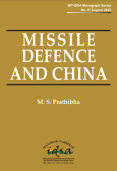The Chinese Message and What Should the Reply Be?
If as the Chinese say that they wish to have ‘good neighborly’ relations with India, then what better way to start, at the very least, to agree to exchange maps and demarcate the LAC on the ground in all sectors.
- R. S. Kalha
- May 21, 2013











